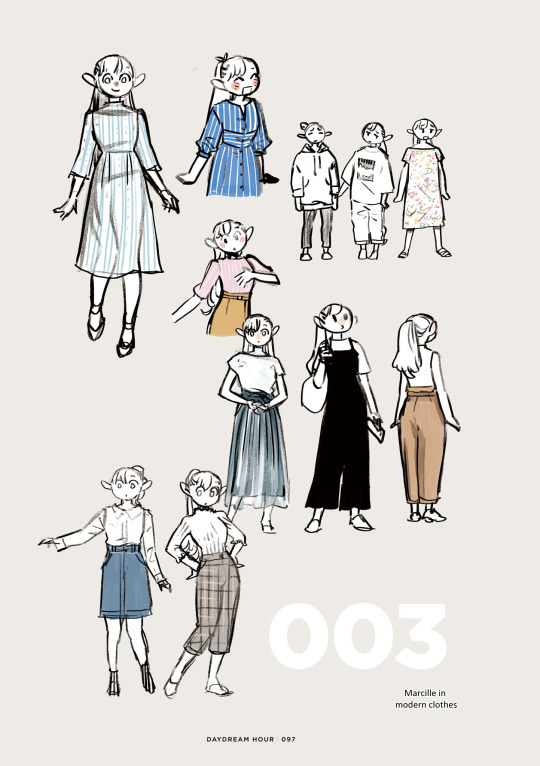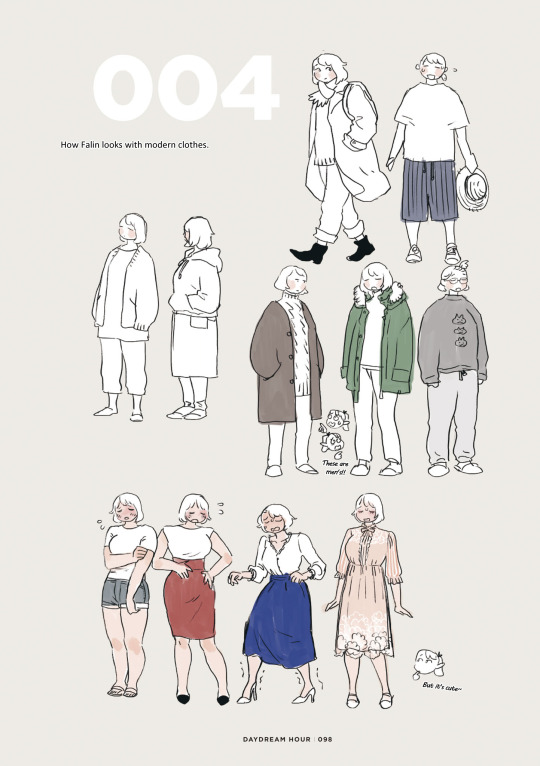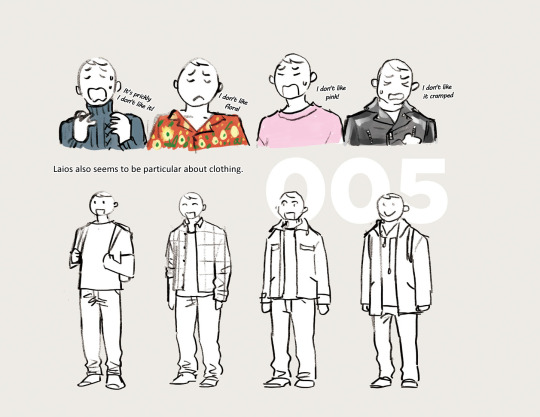#blogging guide
Explore tagged Tumblr posts
Text
Embarking on your blogging journey in 2023 can be an exciting and fulfilling endeavor. By following the steps outlined in this guide, you can create a perfect blog website on WordPress, establishing a solid foundation for success...Read More
#blogger#blogging#blogging tips#blog#seo#success blogger#blogging in 2023#blogging guide#wordpress#wordpress blog#website
2 notes
·
View notes
Link
0 notes
Text
Other Words for "Look" + With meanings | List for writers
Many people create lists of synonyms for the word 'said,' but what about the word 'look'? Here are some synonyms that I enjoy using in my writing, along with their meanings for your reference. While all these words relate to 'look,' they each carry distinct meanings and nuances, so I thought it would be helpful to provide meanings for each one.
Gaze - To look steadily and intently, especially in admiration or thought.
Glance - A brief or hurried look.
Peek - A quick and typically secretive look.
Peer - To look with difficulty or concentration.
Scan - To look over quickly but thoroughly.
Observe - To watch carefully and attentively.
Inspect - To look at closely in order to assess condition or quality.
Stare - To look fixedly or vacantly at someone or something.
Glimpse - To see or perceive briefly or partially.
Eye - To look or stare at intently.
Peruse - To read or examine something with great care.
Scrutinize - To examine or inspect closely and thoroughly.
Behold - To see or observe a thing or person, especially a remarkable one.
Witness - To see something happen, typically a significant event.
Spot - To see, notice, or recognize someone or something.
Contemplate - To look thoughtfully for a long time at.
Sight - To suddenly or unexpectedly see something or someone.
Ogle - To stare at in a lecherous manner.
Leer - To look or gaze in an unpleasant, malicious way.
Gawk - To stare openly and stupidly.
Gape - To stare with one's mouth open wide, in amazement.
Squint - To look with eyes partially closed.
Regard - To consider or think of in a specified way.
Admire - To regard with pleasure, wonder, and approval.
Skim - To look through quickly to gain superficial knowledge.
Reconnoiter - To make a military observation of a region.
Flick - To look or move the eyes quickly.
Rake - To look through something rapidly and unsystematically.
Glare - To look angrily or fiercely.
Peep - To look quickly and secretly through an opening.
Focus - To concentrate one's visual effort on.
Discover - To find or realize something not clear before.
Spot-check - To examine something briefly or at random.
Devour - To look over with eager enthusiasm.
Examine - To inspect in detail to determine condition.
Feast one's eyes - To look at something with great enjoyment.
Catch sight of - To suddenly or unexpectedly see.
Clap eyes on - To suddenly see someone or something.
Set eyes on - To look at, especially for the first time.
Take a dekko - Colloquial for taking a look.
Leer at - To look or gaze in a suggestive manner.
Rubberneck - To stare at something in a foolish way.
Make out - To manage to see or read with difficulty.
Lay eyes on - To see or look at.
Pore over - To look at or read something intently.
Ogle at - To look at in a lecherous or predatory way.
Pry - To look or inquire into something in a determined manner.
Dart - To look quickly or furtively.
Drink in - To look at with great enjoyment or fascination.
Bask in - To look at or enjoy something for a period of time.
#on writing#creative writing#writing#writing tips#writers block#how to write#thewriteadviceforwriters#writeblr#writers and poets#writers on tumblr#novel writing#fiction writing#romance writing#writing advice#writing blog#writing characters#writing community#writing help#writing ideas#writing inspiration#writing guide#writing prompts#writing a book#writing resources#writing reference#writing tips and tricks#writers#writing tools#writing life#writing software
18K notes
·
View notes
Text
The Ultimate Blogging Guide: Start, Grow, and Monetize Your Blog
The Ultimate Blogging Guide: Learn how to start a blog, create engaging content, optimize for SEO, and monetize your platform. This guide covers all the steps and best practices to build a successful blog. The Ultimate Guide to Blogging: How to Start, Grow, and Succeed Blogging has evolved into a powerful platform for sharing knowledge, building communities, and even earning income. Whether…
0 notes
Text
Why Passionate Writers Should Start Blogging: Creative Expression, Income & Community
If you’re a writer, you probably know the thrill of transforming ideas into words. Writing isn’t just a skill. It’s a form of self-expression, a way to process the world, and for many, a true passion. But what if that passion could become something more than a hobby? What if your words could connect with thousands of readers, build a community, and even generate passive income? DisclosureSome…
0 notes
Text
ब्लॉग वेबसाइट को मोनेटाइज करने के लिए आवश्यक पेज
ब्लॉग वेबसाइट को मोनेटाइज करने के लिए आवश्यक पेज
आज के डिजिटल युग में, ब्लॉग वेबसाइट को मोनेटाइज करना एक आम प्रक्रिया बन गई है। इसके लिए वेबसाइट पर कुछ महत्वपूर्ण पेज होना बहुत आवश्यक है जो न केवल यूजर्स का अनुभव बेहतर बनाते हैं बल्कि सर्च इंजन ऑप्टिमाइजेशन (SEO) में भी मदद करते हैं। यहां हम विस्तार से बताएंगे कि ब्लॉग वेबसाइट को मोनेटाइज करने के लिए कौन-कौन से पेज होने चाहिए:
Read More
#Blog Monetization#Blog SEO#Blogger#Blogging Guide#Blogging Tips#Essential Blog Pages#Website Monetization
0 notes
Text
Comprehensive Guide to Tips of Blog Keyword Research
Discover essential strategies in Tips for Blog Keyword Research, a comprehensive guide to mastering the art of keyword selection for your blog. Learn how to identify high-performing keywords, understand search intent, and leverage tools for effective research. Continue reading Comprehensive Guide to Tips of Blog Keyword Research

View On WordPress
0 notes
Text
Hobbies to try in your 20s



Explore art:
Tap into your creative side with painting, drawing, or sculpting. Art is not only therapeutic but also a fantastic way to express yourself and even decorate your space.
Reading:
Join a book club or set a personal reading challenge. From classic literature to modern thrillers, reading can expand your horizons and provide endless inspiration.
Get into gardening:
Whether you have a big backyard or just a small apartment balcony, gardening can be a relaxing and fulfilling hobby.Grow your own herbs, flowers, or vegetables!
Experiment with cooking:
Take on new recipes and cooking techniques. From baking bread to mastering the art of sushi, cooking can be both a practical skill and a creative outlet.
Try photography:
Capture the beauty around you and tell your story through the lens. Experiment with different styles, like portrait or landscape photography, and maybe even start a photo blog.
Practice yoga or meditation:
Incorporate mindfulness into your routine to reduce stress and enhance your overall well-being.
Learn to code:
Dive into the world of programming and build your own apps or websites. Coding is a valuable skill that can open up career opportunities and enhance your problem-solving abilities.
Challenge yourself with puzzles:
Engage your brain with jigsaw puzzles, crosswords, or brain teasers. It's a great way to relax and keep your mind sharp.
Try acting or improv:
Step out of your comfort zone and explore your theatrical side. Acting classes or improv groups can boost your confidence and creativity.
Travel and explore:
If possible, travel to new places, even if it's just a nearby town.Experiencing new cultures and environments can broaden your perspective and inspire new passions.
Try pottery:
Get your hands dirty and create beautiful, functional pieces with pottery. It's a relaxing and creative way to express yourself, and you'll end up with unique, handmade items.
Play games:
Board games,video games, or strategy games can be a great way to unwind and bond with friends.
Learn a new language:
Expand your horizons by learning a new language.It opens up opportunities for travel, cultural exchange, and even new career prospects. Plus, it's a fun and challenging way to keep your brain active.
Start a YouTube Channel or blog:
Share your passions, knowledge, or daily life through videos or written content. It's a creative outlet and a way to connect with like-minded individuals.
#aesthetic#glow up#glow up tips#it girl#study aesthetic#study blog#study inspiration#study motivation#that girl#study#that girl aesthetic#that girl moodboard#that girl outfit#becoming that girl#it girl aesthetic#it girl guide#glow up journey#glow up guide#glow up hacks#hobbies#pink pilates princess#n1pptips#studyblr#self love#self care#self improvement#becoming her#coquette aesthetic#coquette#wellnes girl
3K notes
·
View notes
Text
୨ৎ the girl with everything in her bag .ᐟ
your ultimate guide on how to prepare a bag for whatever the world throws at you!



( any bag should work ─ you could use a smaller bag or use a bigger bag with heaps of pockets! )
WHAT TO PACK .ᐟ
face/makeup related:
makeup for touch ups (if you wear it!)
spare lash glue (if your use falsies!)
lip balm
lip gloss
mini flip mirror
body, hand and hair related:
deodorant (preferably spray on)
mini perfume/body mist
mini lotion
hand cream
hand sanitizer
nail file
spare pad/tampon
hairbrush and/or comb
hair ties
pencil case:
mini notebook
pen and pencil
eraser
mini ruler
sharpener
highlighter
purse/wallet essentials:
house/car keys
ID
drivers license (if you drive)
credit card
spare loose cash
any useful gift cards you own (make sure they have money on them and that they're not expired!)
misc:
gum
mints
wet wipes
mini tissue pack
a snack
bandages (you can also go the extra mile and make a mini first aid kit, although this is optional!)
if you have braces, a toothbrush and mini toothpaste in a travel case are a must!
#𝓥 𝒊𝒐𝒍𝒆𝒕'𝒔 𝒕𝒊𝒑𝒔 .ᐟ ₊ ˚ ⊹ ♡#glow up era#becoming that girl#it girl#that girl#dream girl#dream girl tips#dream girl guide#wonyoungism#clean girl#dream girl vibes#dream girl journey#pink pilates princess#it girl energy#girl blogger#just girly things#girlblogger#gentle reminder#girljournal#pink pilates girl#self care#self love#pink blog#pink text#coquette#law of attraction#pink blogger#lovecore#pinkcore#princesscore
6K notes
·
View notes
Text
Creating Emotionally Devastating Scenes.
Crafting a scene that earns the total sympathy of your readers can be challenging, but it's not impossible. Most emotionally devastating scenes fail at two things, but when these are done right, the results can be powerful.
⚪ The Important Concepts for Writing an Emotionally Devastating Scene
1. The Build-Up,
2. Breaking the Dam.
Before I explain these concepts, let me share a case study.
⚫ Case Study
I wrote a story about a young orphan named Jackie and her younger brother. Their village was burned down, leaving them as the only survivors.
For the next few chapters, readers followed their painful journey and their struggle to survive. The younger brother had a heart problem, and Jackie vowed to become a cardiologist to save him.
She was very ambitious about it, but at the time, it was very ironic. Later in the story, when they encountered a tragic living condition with a family, the brother died while telling his sister how much he missed their parents.
When her brother was fighting for his life, she was sent out of the room, only to be let in again to see his cold, lifeless body.
⚪ Explanation of Concepts
1. The Build-Up
The build-up is extremely important when you aim to convey strong emotions. Here's a secret: if you plan for a scene with strong emotions, start leaving breadcrumbs from the very beginning of the story.
Take the previous case study. I carefully built up their journey so people could easily relate and feel the pain of the older sister during her brother's sudden death.
You need to give the situation enough reason to feel utterly hopeless and devastating. Gradually cultivate the tension until it's ready to let loose.
⚫ Understanding the Use of Breadcrumbs.
Breadcrumbs in stories ensure you utilize the time you have to build up certain emotions around your characters.
At the beginning of my story, Jackie’s fate was already pitiable, but she survived every hurdle. This gave the readers enough to feel for her while still leaning away from the outcome. When I built enough, I introduced her brother's sudden death.
Hence, leave your breadcrumbs while leaning away from the outcome.
⚪ How to Properly Leave Breadcrumbs
When building up your story, consider these elements:
☞ Character Relatability: The characters need to be realistic to draw readers into the story. This helps readers invest themselves in your story.
☞ Realistic Emotional Pain: Just as characters need to be relatable, their emotions need to be realistic and not appear forced.
☞ Create a Strong Emotional Attachment: Give them something they care about or that has the power to ruin their lives in any way. It could be something that makes them happy or something their happiness relies on. When it's time, snatch it away without remorse.
☞ Have a Backstage Struggle: This struggle keeps readers occupied, so they won't see the outcome coming. For example, Jackie’s constant struggle to find food and shelter keeps readers engaged while the impending tragedy looms in the background.
☞ Attach Believable Elements: For a realistic character, emotion, and struggle, attach believable elements. It could be death, ailments, sickness, disorder, disappointment, failure, etc.
Now that we've covered the build-up, let's move on to the next crucial part.
2. Breaking the Dam
This is when you make your readers feel the strong emotions alongside your characters. All the tension you’ve been building up is released, making all emotions come into play.
☞ Break Your Strong Attachment: Cut off your strong attachment from your character when they least expect it or at a point when they couldn't use more struggles (i.e when they are helpless).
This will not only evoke readers’ emotions but also pique their curiosity as they wonder how the character will survive the situation.
☞ Description of Sensory Details to Invoke Emotions: The advice of "show, don't tell" will be really helpful here. It's crucial to ensure that the final execution matches the build-up.
A well-crafted build-up can fall flat if the emotional release isn't handled effectively. To avoid this, blend the climax seamlessly into the narrative, making it feel natural and impactful.
Reblog to save for reference! 💜
#writing#writeblr#writers on tumblr#writer#writers and poets#writerscommunity#writing community#wattpad#ao3 writer#a03 writer#writers of tumblr#aspiring author#aspiring writer#writing advice#writing blog#creative writing#writing discussion#writing encouragement#writing guide#writing help#writing ideas#writing journey#writing life#writing motivation#writing novels#writing on ao3#writing process#writing resources#writing reference#writing requests
2K notes
·
View notes
Text





Dungeon Meshi Daydream Hour
Modern Clothing Sketches - Otta, Milsiril, Falin, Marcille and Laios.
#dungeon meshi#daydream hour#modern clothing#Ryoko Kui#Otta#Otta Dungeon Meshi#Milsiril#Falin Touden#Falin#Marcille#Marcille Donato#Laios Touden#Laios#the complete daydream hour#fun fact: I also saved the otta drawing from ryoko kui's blog and the file was called otter#very cute#I love how these are basically style guides showing how comfortable they are with what type of clothing#compilation#for referencing
6K notes
·
View notes
Text
What is the best site to submit your own content (article or blog post) in order to get it indexed quickly by search engines?
Medium is the best site to submit your own content (article or blog post) in order to get it indexed quickly by search engines.
Here's why:
Medium is a high-authority website with a strong domain authority (DA) of 94. This means that search engines like Google trust Medium and are likely to index its content quickly.
Medium has a large and engaged audience, with over 100 million monthly active users. This means that your content has the potential to be seen by a lot of people, even if you don't have a large following of your own.
Medium makes it easy to submit and publish your content. You can create an account for free and start publishing articles immediately.
Medium automatically distributes your content to its social media channels, which can help to get your content seen by more people.
How to submit your content to Medium:
Create a Medium account or sign in to your existing account.
Click the "New Story" button in the top right corner of the page.
Give your article a title and subtitle.
Write your article in the editor.
Add tags to your article to help people find it.
Click the "Publish" button.
Once you publish your article on Medium, it will be indexed by search engines very quickly. In most cases, your article will be indexed within a few hours or even minutes.
Please Follow, comment, and like this answer if you found it helpful!
0 notes
Text
Character Flaws and Their Meanings
Impulsiveness : Acts on instinct without careful planning. Perfectionism : Sets unrealistically high standards, leading to self-criticism. Indecisiveness : Struggles to commit to decisions or choose a path. Arrogance : Overestimates one’s abilities and dismisses others. Pessimism : Habitually expects negative outcomes in most situations. Cynicism : Distrusts the motives and sincerity of others. Overconfidence : Places excessive faith in one’s skills, often underestimating risks. Stubbornness : Resists change and refuses to adapt to new ideas. Jealousy : Feels envious of others' success or possessions. Insecurity : Experiences frequent self-doubt and a lack of confidence. Procrastination : Tends to delay tasks, often leading to missed opportunities. Passivity : Avoids taking initiative and relies on others to act. Aggressiveness : Responds with hostility or force rather than reason. Selfishness : Prioritizes personal gain over the welfare of others. Fragility : Is overly sensitive to criticism and easily discouraged. Egotism : Constantly focuses on oneself and one’s own importance. Defensiveness : Quickly rejects or rationalizes away critique or new information. Manipulativeness : Exploits others to fulfill personal needs or desires. Recklessness : Shows a careless disregard for potential risks or consequences. Resentfulness : Holds lingering bitterness and grudges over perceived wrongs. Distractibility : Finds it hard to maintain focus amid competing interests. Impatience : Lacks the willingness to wait, often spoiling opportunities to learn. Perfunctory : Performs actions in a mechanical, uninspired manner. Self-Doubt : Consistently questions personal abilities and decisions. Arbitraryness : Makes decisions based on whim rather than reason or evidence. Rigidity : Is inflexible and unwilling to consider alternative viewpoints. Gullibility : Trusts too easily, often leading to being misled or deceived. Obsession : Becomes excessively fixated on particular ideas or details. Aloofness : Maintains emotional distance, appearing detached or indifferent. Intolerance : Refuses to accept differing perspectives or lifestyles.
Writing Advice for Brainstorming
Mix genres and time periods: Experiment by combining elements from different eras or genres to create unique settings and narratives.
Use "what if" scenarios: Pose unexpected questions (e.g., What if time travel operated on emotions rather than mechanics?) to spark novel ideas.
Draw from diverse mediums: Engage with art, music, or even scientific papers to inspire unexpected plot twists.
Embrace absurdity: Let illogical or surreal ideas guide you; sometimes the wildest thoughts lead to compelling stories.
Reverse clichés: Identify common tropes in your favorite genres and deliberately invert them to create fresh perspectives.
Incorporate personal anomalies: Transform your idiosyncrasies and personal struggles into rich, multi-dimensional characters.
Use mind-mapping: Visually plot your ideas in a freeform way to uncover hidden connections between disparate elements.
#writing#writeblr#on writing#writing tips#how to write#writers block#creative writing#writers and poets#thewriteadviceforwriters#writers on tumblr#writing project#fiction writing#novel writing#writing a book#writing advice#romance writing#writing characters#writing community#writing guide#writing inspiration#writing prompts#writing ideas#writing reference#writing blog#writing resources#writing help#writing software#writerscommunity#writers#writing tips and tricks
9K notes
·
View notes
Text
Blogging Fun Facts
📝💰💻 Are you looking to turn your passion for writing into a profitable career? Blogging might just be the answer! Here's how you can make money from your blog: 1️⃣ Affiliate marketing: Promote products and services on your blog and earn a commission for every sale made through your unique affiliate link. 2️⃣ Sponsored posts: Get paid to write about products or services that align with your blog's niche. 3️⃣ Advertising: Display ads on your blog and earn money based on the number of clicks or impressions. 4️⃣ Sell digital products: Create and sell ebooks, courses, or printables related to your blog's niche. But remember, making money from blogging takes time and effort. Focus on creating high-quality content and building a loyal audience first.
📝 Seeking comprehensive guidance on starting a profitable blogging business? Look no further! My beginner's blogging guide is here to equip you with all the essential tips for creating successful content and earning a steady income.💰
#blogger#blogging guide#make money blogging#blog#tumblelog#make money online#digital marketing#home business#work from home#online business#affiliate marketing#make money with affiliate marketing
0 notes
Text
How to regress (AGERE)?
🧸 1. Create a Safe Space
Find a private, quiet, and comfortable place.
Use soft lighting, cozy blankets, and items that feel safe.
If you have a caregiver (CG), let them know you're regressing. (If possible! some littles may be nonverbal <3)
🎨 2. Gather Comfort Items (Optional but Helpful)
Stuffies/plushies
Blankets or pacifiers
Sippy cups or bottles
Snacks (like applesauce, juice boxes, goldfish crackers)
Toys, coloring books, or sensory items
🎧 3. Choose Comforting Activities
Watch cartoons or kids’ movies
Color or play with toys
Listen to lullabies or soft music
Nap or cuddle with a stuffed animal
Use kids' apps or games
Talk in a childlike voice if it helps
🫧 4. Let Go of Adult Worries
Try to mentally "put away" responsibilities
Use affirmations like: "I am safe." "I don’t have to worry right now." "It’s okay to be small."
🛑 5. Set Limits
Set a timer if you have things to do later
Avoid regressing in unsafe or inappropriate environments
Practice self-care after regressing — drink water, reflect gently, and ease back into your usual mindset
Optional: Journaling or Memory Triggers
Some find it helpful to keep a regression journal or make a playlist of comforting songs, shows, or smells that help trigger the regressed mindset.
⚠️ Important Notes
Please keep an eye on yourself; keep safe when regressing.
Remind yourself: “It’s okay to need comfort.” There’s no shame in wanting to feel little or cared for.
You don’t have to “act like a child” — regression is about your internal experience, not outward behavior.
Everyone's regression looks different; there is no wrong or right way to regress.
#agere blog#agere#agere community#age regressor#agere little#age regressive#age regression#agereg#sfw agere#sfw agereg#safe agere#sfw littlespace#sfw age regression#sfw interaction only#sfw little blog#agere activities#agere positivity#agere tips#agere guide#how to regress#how to age regress#age regressing#Safe space creation#safe space#inner child#mental health#Coping mechanism#mental heath awareness
832 notes
·
View notes